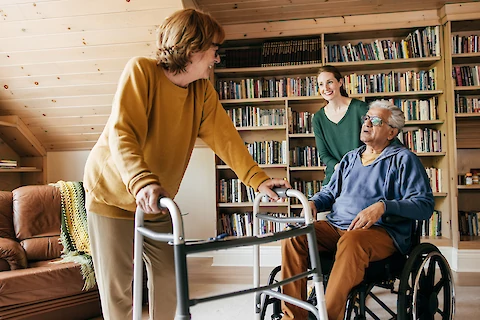
Elder care requires various resources that enhance the safety and independence of senior citizens. One type is durable medical equipment (DME). If you're a caretaker for a senior relative, understanding DME can go a long way in providing efficient care and support.
Here, we'll define DME and guide you on how to access and choose the right equipment for your loved one. With this knowledge, you'll be better equipped to ensure your senior relative leads a comfortable, safe, and fulfilled life at home.
What Is DME?
DME refers to medical equipment designed for long-term usage. These devices are usually used in homes to assist the elderly with specific health conditions and improve their overall quality of life. Examples of DME include but are not limited to mobility aids such as walkers and wheelchairs, hospital beds for home use, nebulizers, oxygen equipment, and even some diabetic supplies.
The Role of DME in Senior Care
DME plays a pivotal role in senior care. These devices significantly improve seniors' quality of life by enhancing their ability to perform day-to-day activities. For instance, a walker or wheelchair can help seniors with mobility issues move around without assistance.
Some devices, such as bath safety equipment and raised toilet seats, are designed to prevent accidents at home, providing a safer living environment.
Qualifying for DME
While many individuals can benefit from DME, they must meet certain criteria to qualify for these devices, primarily if they are to be covered by insurance. A physician or other authorized healthcare provider will have to prescribe the DME, which must be necessary for the patient's health, safety, or mobility. Documentation demonstrating the need is typically needed to get coverage from insurance providers.
Accessing DME
Accessing DME is often straightforward, especially when prescribed by a healthcare professional. Some pharmacies also offer smaller DME items. Insurance providers often have approved supplier lists that can guide you on where to obtain your equipment. While many items are easily purchased at medical supply retailers, it's important to learn how to correctly use them to prevent injuries. That's where physical therapists and professional in-home caregivers come in.
Choosing the Right DME
Choosing the right DME can be confusing, given the many options available. However, a few key considerations can simplify the process. The specific health needs of the senior should be the top priority. It's essential to accurately assess their health condition and choose the equipment that directly addresses their unique concerns.
Quality is another crucial aspect to consider. High-quality, durable equipment may have a higher upfront cost but will likely last longer and perform better over time. Reading product reviews and ratings is always a good idea, especially if purchasing online.
Finally, get the opinion of a healthcare professional. They have the experience and expertise to suggest suitable options that meet the senior's specific needs. They can often provide brand or manufacturer recommendations based on their experience with previous patients.
Rely on Senior Helpers
Do you or your senior loved one need help with in-home care? If they live in Hanover, Gettysburg, Red Lion, York County, or Adams County, contact us today at Senior Helpers. Our comprehensive services make it easy for families to provide the best care possible for seniors who want to remain independent in their own homes for as long as possible. We look forward to hearing from you.